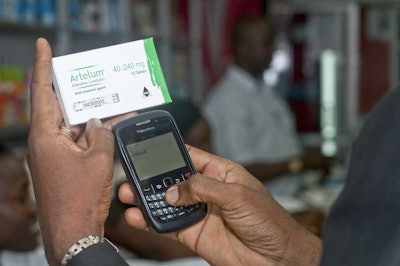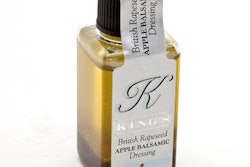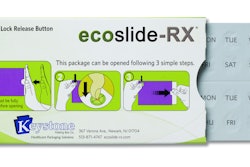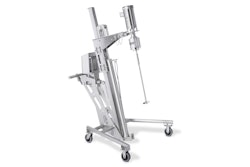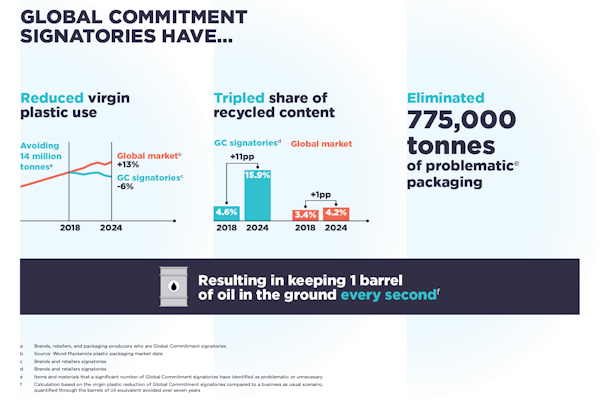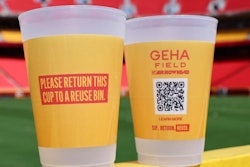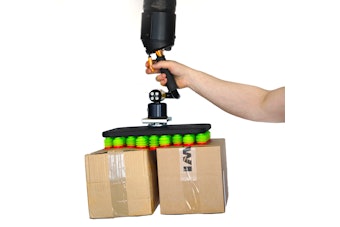In Africa, people are using their smartphones to check diabetes medications to ensure they are authentic and not counterfeit.
Soon you’ll likely be able to take your mobile phone, scan a datamatrix code on an OTC package in your favorite drug store and download coupons, get information on a product, check for drug interactions, and maybe even communicate to your doctor that you’re complying with his or her prescribed regimen.
Mobile technology’s ability to deliver health information and services on a global scale was honored by the mHealth Alliance, with funding from the Rockefeller Foundation, during the Dec. 4 “Top 11 in 2011 Innovators Challenge, a first-of-its-kind competition that recognizes pioneering mobile health professionals who have used mobile technology in innovative ways to improve health systems and outcomes in even the most remote areas of the world. The mHealth Alliance champions the use of mobile technologies to improve health throughout the world.
The Top 11 in 2011 Innovators were selected through a process that included public nominations and voting on the mHealth Alliance’s HealthUnbound.org site, as well as juried selection committee voting. Nominations came from more than 30 countries around the world. Winning was Bright Simons from Ghana, which according to an mHealth press release invented mPedigree, the free text-messaging application for fighting counterfeit medicines, and launched the mPedigree Network in Africa and South Asia.
“The growing field of mHealth is driven by innovation,” said Patty Mechael, executive director of the mHealth Alliance. “From fighting counterfeit medications to enabling doctors to communicate for free, the contributions of these top innovators are advancing the field, expanding delivery of important health services, and saving lives.”
HHS applauds mHealth
“Since I was here in 2009, few fields have undergone such rapid change as mHealth. Virtually every American today has a cell phone. Some of us have to carry two. And every year, our phones have more features and computing power. This year, for the first time ever, smart phones accounted for more than half of all phone sales in the U.S.,” noted Health and Human Services Secretary Kathleen Sebelius Dec. 5 at the mHealth Summit in Washington.
“Over the last few decades, we’ve seen information technology improve the consumer experience in almost every area of our lives,” she said during her mHealth Summit speech. “But health care has stubbornly held onto its cabinets and hanging files. When innovation is slow, so is improvement. As a result, in a country with the world’s best doctors and nurses, its most advanced medical technology, its finest research institutions, and its highest health spending--Americans live sicker and die sooner than the people of many other nations around the world.
“Mobile health [is] bringing health information from people’s computers to their pockets and purses. The advantage of mobile phones is that they’re always with us. This also makes cell phones an incredible tool for empowering consumers to take control of their own health. Eating a healthy diet, managing our diabetes, choosing a doctor, quitting smoking--these are all areas that require us to take charge of our own health.”
Sebelius praised iTriage for making “finding a local care facility as easy as finding a local lunch spot,” and Pillbox, “which helps people quickly identify unlabeled medications.”
She noted that mHealth applications are not just for patients, saying, “Today, technologies built for consumers like iPads are finding their way into lab coat pockets, and a smart phone loaded with Epocrates is almost as much of a requirement for new doctors as a stethoscope. Perhaps most important of all, mobile technologies are opening up new lines of communication: between patients and their doctors, among health care providers trying to stay on the same page, and even among communities of patients.”
Looking to the future, Sebelius noted, “The mobile health industry will also benefit from improving the health care system. Any change that empowers patients and encourages providers to work more closely together also creates more demand for your products. When we talk about mobile health, we are talking about taking the biggest technology breakthrough of our time and using it to take on one of the greatest national challenges of our time. And while we have a way to go, we can already imagine a remarkable future in which control over your health is always within hand’s reach.
“We can imagine a future where you take a video of a rash on your foot, and get a diagnosis later that afternoon without needing to schedule a doctor’s appointment. A future where you keep a healthy weight with a phone that uses a motion sensor to calculate how many calories you’ve burned and estimates how many calories are on your plate by snapping a picture. A future where you get an automatic reminder that it’s time for your next mammogram, text back to confirm your appointment, and schedule the test without any doctor or office staff lifting a finger. A future where taking care of your health is something you do with the help of your doctor every day, not just once a year at an appointment.”
